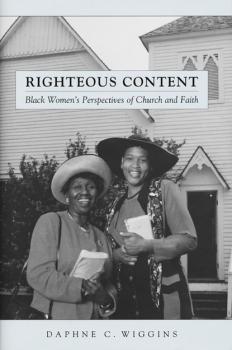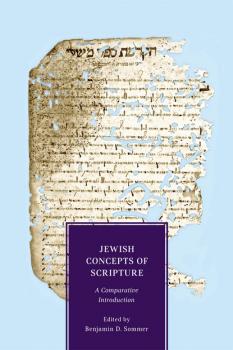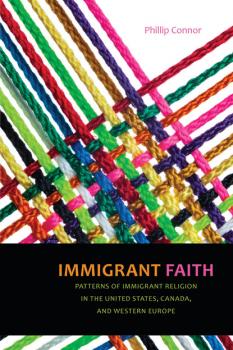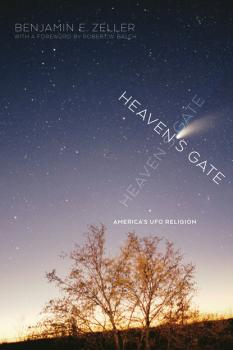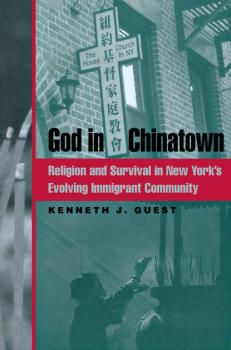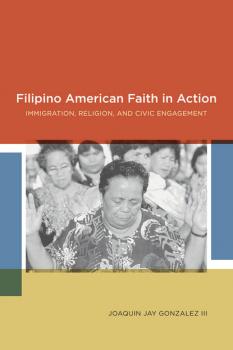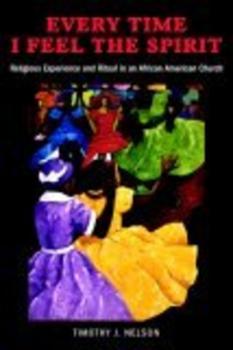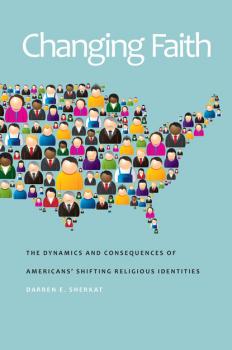Зарубежная эзотерическая и религиозная литература
Различные книги в жанре Зарубежная эзотерическая и религиозная литератураRighteous Content
Enter most African American congregations and you are likely to see the century-old pattern of a predominantly female audience led by a male pastor. How do we explain the dedication of African American women to the church, particularly when the church's regard for women has been questioned?Following in the footsteps of Evelyn Brooks Higginbotham's pathbreaking work, Righteous Discontent , Daphne Wiggins takes a contemporary look at the religiosity of black women. Her ethnographic work explores what is behind black women's intense loyalty to the church, bringing to the fore the voices of the female membership of black churches as few have done. Wiggins illuminates the spiritual sustenance the church provides black women, uncovers their critical assessment of the church's ministry, and interprets the consequences of their limited collective activism.Wiggins paints a vivid portrait of what lived religion is like in black women's lives today.
Noise and Spirit
Rap music is often seen as a Black secular response to pressing issues of our time. Yet, like spirituals, the blues, and gospel music, rap has deep connections to African American religious traditions. Noise and Spirit explores the diverse religious dimensions of rap stemming from Islam (including the Nation of Islam and Five Percent Nation), Rastafarianism, and Humanism, as well as Christianity. The volume examines rap’s dialogue with religious traditions, from the ways in which Islamic rap music is used as a method of religious and political instruction to the uses of both the blues and Black women’s rap for considering the distinction between God and the Devil.The first section explores rap’s association with more easily recognizable religious traditions and communities such as Christianity and Islam. The next presents discussions of rap and important spiritual considerations, including on the topic of death. The final unit wrestles with ways to theologize about the relationship between the sacred and the profane in rap.
Jewish Concepts of Scripture
What do Jews think scripture is? How do the People of the Book conceive of the Book of Books? In what ways is it authoritative? Who has the right to interpret it? Is it divinely or humanly written? And have Jews always thought about the Bible in the same way? In seventeen cohesive and rigorously researched essays, this volume traces the way some of the most important Jewish thinkers throughout history have addressed these questions from the rabbinic era through the medieval Islamic world to modern Jewish scholarship. They address why different Jewish thinkers, writers, and communities have turned to the Bible—and what they expect to get from it. Ultimately, argues editor Benjamin D. Sommer, in understanding the ways Jews construct scripture, we begin to understand the ways Jews construct themselves.
Immigrant Faith
Immigrant Faith examines trends and patterns relating to religion in the lives ofimmigrants. The volume moves beyond specific studies of particular faiths inparticular immigrant destinations to present the religious lives of immigrantsin the United States, Canada, and Europe on a broad scale. Religion is not merely one aspect among many in immigrant lives. Immigrant faith affects daily interactions, shapes the future of immigrants intheir destination society, and influences society beyond the immigrantsthemselves. In other words, to understand immigrants, one must understand theirfaith. Drawing on census data and other surveys, including data sources from several countries andstatistical data from thousands of immigrant interviews, the volume provides aconcise overview of immigrant religion. It sheds light on whether religionshapes the choice of destination for migrants, if immigrants are more or lessreligious after migrating, if religious immigrants have an easier adjustment,or if religious migrants tend to fare better or worse economically thannon-religious migrants. Immigrant Faith covers demographic trends from initial migration tosettlement to the transmission of faith to the second generation. It offers theperfect introduction to big picture patterns of immigrant religion for scholarsand students, as well as religious leaders and policy makers.
Heaven's Gate
2015 Best Book Award from the Communal Studies Association The captivating story of the people of Heaven’s Gate, a religious group focused on transcending humanity and the Earth, and seeking salvation in the literal heavens on board a UFO. In March 1997, thirty-nine people in Rancho Santa Fe, California, ritually terminated their lives. To outsiders, it was a mass suicide. To insiders, it was a graduation. This act was the culmination of over two decades of spiritual and social development for the members of Heaven’s Gate. In this fascinating overview, Benjamin Zeller not only explores the question of why the members of Heaven’s Gate committed ritual suicides, but interrogates the origin and evolution of the religion, its appeal, and its practices. By tracking the development of the history, social structure, and worldview of Heaven’s Gate, Zeller draws out the ways in which the movement was both a reflection and a microcosm of larger American culture.The group emerged out of engagement with Evangelical Christianity, the New Age movement, science fiction and UFOs, and conspiracy theories, and it evolved in response to the religious quests of baby boomers, new religions of the counterculture, and the narcissistic pessimism of the 1990s. Thus, Heaven’s Gate not only reflects the context of its environment, but also reveals how those forces interacted in the form of a single religious body. In the only book-length study of Heaven’s Gate, Zeller traces the roots of the movement, examines its beliefs and practices, and tells the captivating story of its people.
God in Chinatown
God in Chinatown is a path breaking study of the largest contemporary wave of new immigrants to Chinatown. Since the 1980s, tens of thousands of mostly rural Chinese have migrated from Fuzhou, on China’s southeastern coast, to New York’s Chinatown. Like the Cantonese who comprised the previous wave of migrants, the Fuzhou have brought with them their religious beliefs, practices, and local deities. In recent years these immigrants have established numerous specifically Fuzhounese religious communities, ranging from Buddhist, Daoist, and Chinese popular religion to Protestant and Catholic Christianity.This ethnographic study examines the central role of these religious communities in the immigrant incorporation process in Chinatown’s highly stratified ethnic enclave, as well as the transnational networks established between religious communities in New York and China. The author’s knowledge of Chinese coupled with his extensive fieldwork in both China and New York enable him to illuminate how these networks transmit religious and social dynamics to the United States, as well as how these new American institutions influence religious and social relations in the religious revival sweeping southeastern China. God in Chinatown is the first study to bring to light religion's significant role in the Fuzhounese immigrants’ dramatic transformation of the face of New York’s Chinatown.
Gender in Judaism and Islam
Jewish andIslamic histories have long been interrelated. Both traditions emerged fromancient cultures born in the Middle East and both are rooted in texts andtraditions that have often excluded women. At the same time, both groups haverecently seen a resurgence in religious orthodoxy among women, as well asgrowing feminist movements that challenge traditional religious structures. In theUnited States, Jews and Muslims operate as minority cultures, carving out aplace for religious and ethnic distinctiveness. The time is ripe for a volumethat explores the relationship between these two religions through the prism ofgender. Gender in Judaism and Islam brings togetherscholars working in the fields of Judaism and Islam to address a diverse rangeof topics, including gendered readings of texts, legal issues in marriage anddivorce, ritual practices, and women's literary expressionsand historical experiences, along with feminist influences within the Muslimand Jewish communities and issues affecting Jewish and Muslim women incontemporary society. Carefully crafted, including section introductions by theeditors to highlight big picture insights offered by the contributors, thevolume focuses attention on the theoretical innovations that gender scholarshiphas brought to the study of Muslim and Jewish experiences.At a timewhen Judaism and Islam are often discussed as though they were inherently atodds, this book offers a much-needed reconsideration of the connections andcommonalties between these two traditions. It offers new insights into each ofthese cultures and invites comparative perspectives that deepen ourunderstanding of both Islam and Judaism.
Filipino American Faith in Action
Filipinos are now the second largest Asian American immigrant group in the United States, with a population larger than Japanese Americans and Korean Americans combined. Surprisingly, there is little published on Filipino Americans and their religion, or the ways in which their religious traditions may influence the broader culture in which they are becoming established. Filipino American Faith in Action draws on interviews, survey data, and participant observation to shed light on this large immigrant community. It explores Filipino American religious institutions as essential locations for empowerment and civic engagement, illuminating how Filipino spiritual experiences can offer a lens for viewing this migrant community’s social, political, economic, and cultural integration into American life. Gonzalez examines Filipino American church involvement and religious practices in the San Francisco Bay Area and in the Phillipines, showing how Filipino Americans maintain community and ethnic and religious networks, contra assimilation theory, and how they go about sharing their traditions with the larger society.
Every Time I Feel the Spirit
Dreams and visions, prophetic words from God about «dusty souls,» speaking in tongues while «in the spirit»—narratives of these and similar events comprise the heart of Every Time I Feel the Spirit . This in-depth study of a Black congregation in Charleston, South Carolina provides a window into the tremendously important yet still largely overlooked world of African American religion as the faith is lived by ordinary believers. For decades, scholars have been preoccupied with the relation between Black Christianity, civil rights, and social activism. Every Time I Feel the Spirit is about black religion as religion. It focuses on the everyday experience of religion in the church, congregants' relationships with God, and the role that God and Satan play in congregants' lives—not only as objects of belief but as actual agents. It explores the concepts of religious experience and religious ritual, while emphasizing the attributions that people make to the operation of spiritual forces and beings in their lives. Through interviews and field work, Nelson uncovers what religious people themselves see as important about their faith while extending and refining sociological understandings of religious ritual and religious experience.
Changing Faith
More than anywhere else in the Western world, religious attachments in America are quite flexible, with over 40 percent of U.S. citizens shifting their religious identification at least once in their lives. In Changing Faith, Darren E. Sherkat draws on empirical data from large-scale national studies to provide a comprehensive portrait of religious change and its consequences in the United States. With analysis spanning across generations and ethnic groups, the volume traces the evolution of the experience of Protestantism and Catholicism in the United States, the dramatic growth of Hinduism, Buddhism, and Islam, and the rise of non-identification, now the second most common religious affiliation in the country. Drawing on that wealth of data, it details the impact of religious commitments on broad arenas of American social life, including family and sexuality, economic well-being, political commitments, and social values. Exploring religious change among those of European heritage as well as of Eastern and Western European immigrants, African Americans, Asians, Latin Americans, and Native Americans, Changing Faith not only provides a comprehensive and ethnically inclusive demographic overview of the juncture between religion and ethnicity within both the private and public sphere, but also brings empirical analysis back to the sociology of religion.
